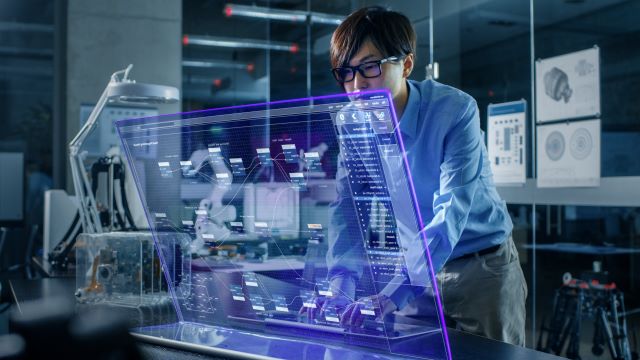
During the summer of 2018, the World Economic Forum’s Future of Jobs Report projected that by 2025, more than half of all workplace tasks would be performed by machines.
While the robot revolution transformed the world of work and more tasks became automated, the report estimated that as many as 133 million new jobs could be created, despite 75 million jobs being lost to machines.
The report also suggested that the types of tasks performed by robots would evolve, as they begin to take on traditionally human roles.
Humans would shift to roles that involve managing, advising, reasoning, and making decisions, requiring reskilling to focus on creativity and innovation.
Reskilling will be essential for all workers, as the future workforce—comprised of humans, machines, and algorithms—will demand constantly changing skills.
The Future of Jobs Report 2025 drew insights from over 1,000 of the world’s largest employers.
It indicated that some of the fastest-growing jobs would include data specialists, fintech engineers, AI and machine learning specialists, software and application developers, security management specialists, data warehousing specialists, autonomous and electric vehicle specialists, UI and UX designers, light truck or delivery service drivers, Internet of Things specialists, data analysts and scientists, environmental engineers, information security analysts, and DevOps engineers.
Earlier this year, Randstad published the 2025 Workmonitor report, initially launched in 2003, to measure the gap between workforce realities and employees’ aspirations.
The report tracks changes over time and examines shifts in priorities among workers.
Artificial intelligence (AI), flexibility, reskilling, upskilling, remote work, job security, career growth, company culture, company values, and work-life balance are the key workplace trends in the 2025 Work monitor.
Data from the 2025 Randstad Workmonitor revealed that 72% of respondents consider training and development essential for current and future growth. Notably, 40% of respondents identified artificial intelligence (AI) as their most desired area for training.
Work-life balance emerged as the most critical motivator for 83% of those surveyed, surpassing pay, which was prioritized by 82%.
Additionally, eight out of ten respondents stated that a sense of community enhances their workplace performance.
In contrast, 62% reported hiding aspects of themselves at work, while 41% believed that improving equity is the employer’s responsibility.
Moreover, 44% have changed jobs due to a toxic workplace culture, and 31% cited a lack of career progression opportunities. Themes of personalization, community, and investment in workforce development remain vital discussions in breaking barriers and building futures.
According to @WEF, by 2025, half of all workplace tasks will be performed by machines. @AndrewYang pic.twitter.com/oFfLg7cTfv
— Vala Afshar (@ValaAfshar) August 13, 2020
The Future of Jobs Report 2025 is now live. Drawing on insights from over 1,000 of the world’s largest employers, the report dives into the key areas of disruption and opportunity within the #labour market. pic.twitter.com/BNd2QLT7bJ
— World Economic Forum (@wef) January 8, 2025
The U.S. Army Corps of Engineers has been tasked with…
Brown and Caldwell, a leading environmental engineering and construction firm,…
Humboldt State University, one of four campuses within the California…